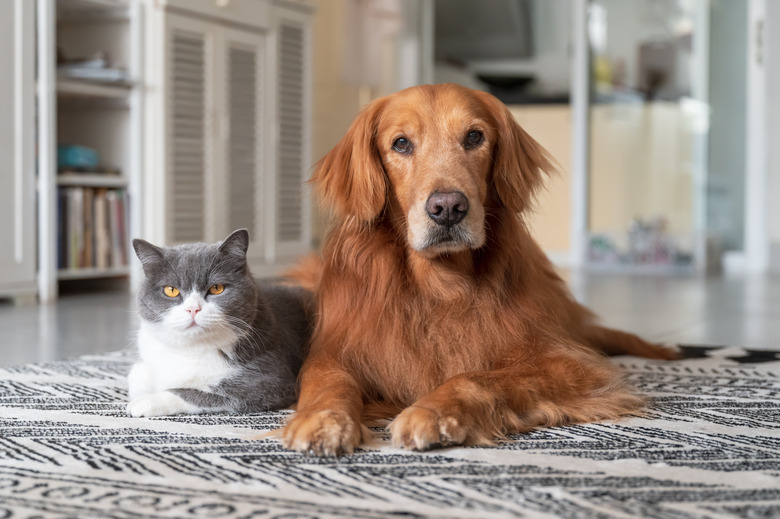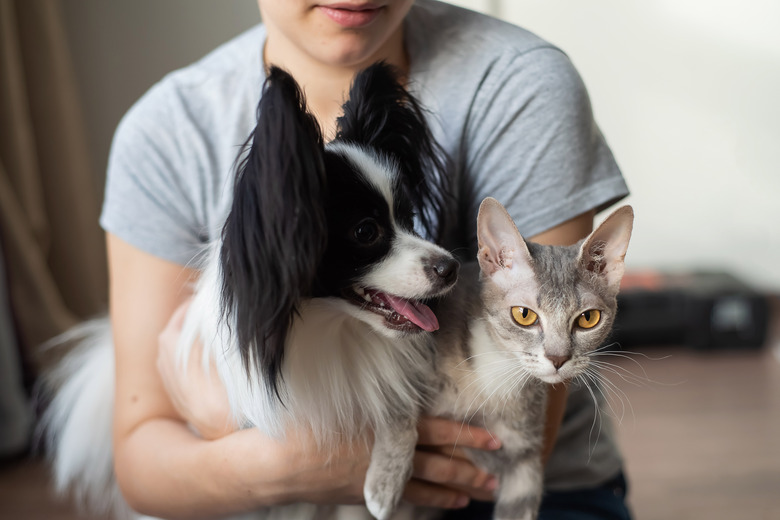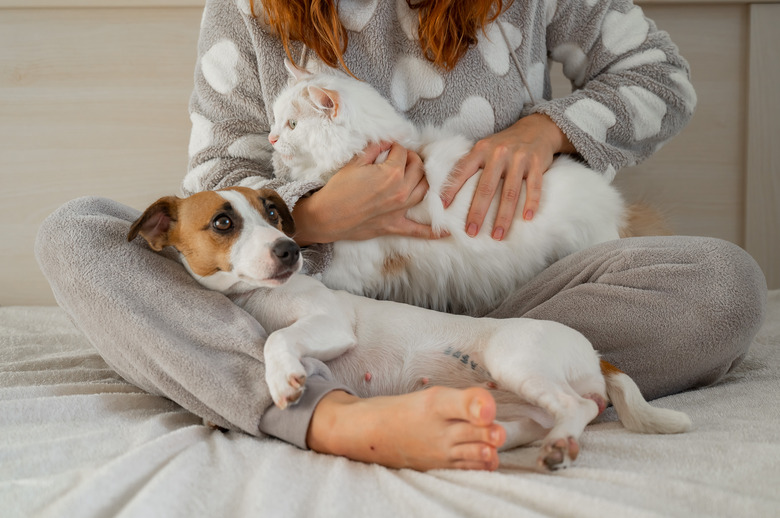How Is Owning A Cat Different From A Dog?
No two pets are the same, and we wouldn't want it any other way: That's why we love them so much! Though what if you are dealing with a pair of opposites in your household? If you are considering adding a new pet to your family, you may want to consider the ways in which felines differ from canines. So, how is owning a cat different from a dog?
We will not be having a cats vs. dogs debate over which species is better! We love all animals here at Cuteness! Although cats and dogs have a lot in common, they still have some qualities that make them quite different (and lovable).
Cleaning up after dogs and cats
Cleaning up after dogs and cats
Let's face it: A big difference between dogs and cats is how they get rid of their waste. Cats use a litter box when they do their business, while dogs may go to the bathroom when outside on a walk. Dogs usually need to be housebroken and on a very consistent bathroom schedule. Generally, cats are a bit more self-contained when it comes to their waste management. According to the Animal Humane Society, most cats require little training to use a litter box. This is due to their natural desire to dig and bury their waste. Though it is important to note, that once a cat has undesirable behavioral problems related to waste, they can be more difficult to resolve later.
Playtime, exercise, and activity
Playtime, exercise, and activity
The way dogs and cats engage in play, exercise, and overall activity is incredibly different. Dogs tend to be pack animals, while cats are often more territorial in nature. However, you may that find certain cat breeds tend to act more like dogs. These cats crave affection, company, and lots of playtime — and some may even play fetch! Cats also love to pounce. According to Hill's Pet, pouncing is part of their play and predatory behavior — and a natural instinct. Some cats also use a scratching post and enjoy playing with small toys and ribbons.
Dogs, on the other hand, like to wrestle, bite, and snarl. They will get quite rough, and you need to read their body language to distinguish if they are engaged in play. According to AKC if two dogs' tails are wagging, that usually means they are having a good time.
Feeding dogs and cats
Feeding dogs and cats
Cats and dogs follow very different diets. Dogs can be omnivores, meaning they can eat both meat and vegetables. Cats are strictly carnivores, meaning they only eat meat — so don't try to sneak broccoli to your cat — which should be fed sparingly, if at all. According to ASPCA, cats need meat to survive and their digestive system isn't set up to handle a plant-based diet. Though dogs are more capable of digesting both plant and animal material.
Fleas on dogs and cats
Fleas on dogs and cats
Dogs and cats can experience their share of specific health issues, but according to ASPCA, fleas and ticks can infest both cats and dogs. No one likes pests, especially your pet! Plus, fleas and ticks can cause a variety of health issues for your cat or dog. It is important to talk to your vet and keep your pet up to date with their flea prevention.
In summary
In summary
Dogs and cats have their differences, and it is extremely important to understand that before bringing a new pet into your home. These differences include diet, waste habits, play, and exercise. Be sure to understand your existing pet's natural behaviors and how they fit into your daily routine and lifestyle before bringing a new pet into your home!


